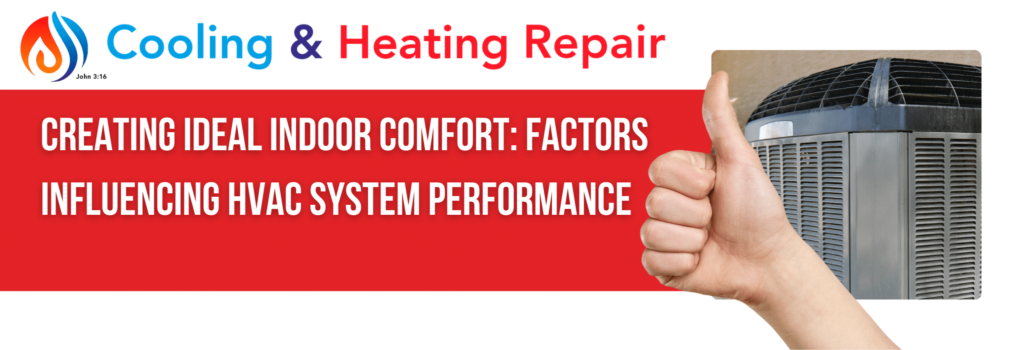Creating Ideal Indoor Comfort: Factors Influencing HVAC System Performance

In the pursuit of optimal indoor comfort, understanding the key factors that contribute to the performance of Heating, Ventilation, and Air Conditioning (HVAC) systems is essential. Whether in residential or commercial spaces, a well-designed HVAC system plays a crucial role in maintaining a comfortable and healthy indoor environment. Let’s delve into the factors that significantly influence indoor comfort in relation to HVAC systems.
- Temperature Control:
- Precise temperature regulation is fundamental for indoor comfort. HVAC systems should efficiently cool or heat spaces based on user preferences and external conditions.
- Humidity Management:
- Maintaining an ideal humidity level is vital for comfort and health. HVAC systems with humidity control features help prevent issues like mold growth and ensure a pleasant indoor atmosphere.
- Air Quality Enhancement:
- Effective air filtration and purification systems are integral to improving indoor air quality. HVAC units equipped with advanced filters help remove allergens, dust, and pollutants, contributing to a healthier and more comfortable living or working environment.
- Proper Ventilation:
- Adequate ventilation is essential for replacing stale indoor air with fresh outdoor air. Well-designed HVAC systems incorporate proper ventilation strategies to ensure a continuous flow of clean air throughout the space.
- Airflow Optimization:
- Optimal airflow patterns prevent uneven temperature distribution and enhance overall comfort. Properly designed ductwork and strategically placed vents help ensure consistent airflow, avoiding hot or cold spots within a room.
- Noise Reduction Technology:
- Unwanted noise from HVAC systems can disrupt the tranquility of a space. Modern HVAC units incorporate noise reduction technologies to provide quiet operation without compromising performance.
- Energy Efficiency:
- Energy-efficient HVAC systems not only contribute to environmental sustainability but also help reduce utility costs. Smart technologies, programmable thermostats, and high-efficiency equipment play a role in achieving energy savings while maintaining comfort.
- Smart Controls and Automation:
- Integrating smart controls allows users to customize and automate HVAC settings based on their preferences and schedules. Smart thermostats and building automation systems contribute to convenience and energy optimization.
In conclusion, achieving optimal indoor comfort through HVAC systems involves a holistic approach that addresses temperature, humidity, air quality, ventilation, airflow, noise, energy efficiency, and smart controls. By considering these factors and investing in a well-designed HVAC system, individuals and businesses can create spaces that promote comfort, health, and overall well-being. If you’re looking to enhance indoor comfort, consult with HVAC professionals to explore the latest technologies and tailored solutions for your specific needs.


